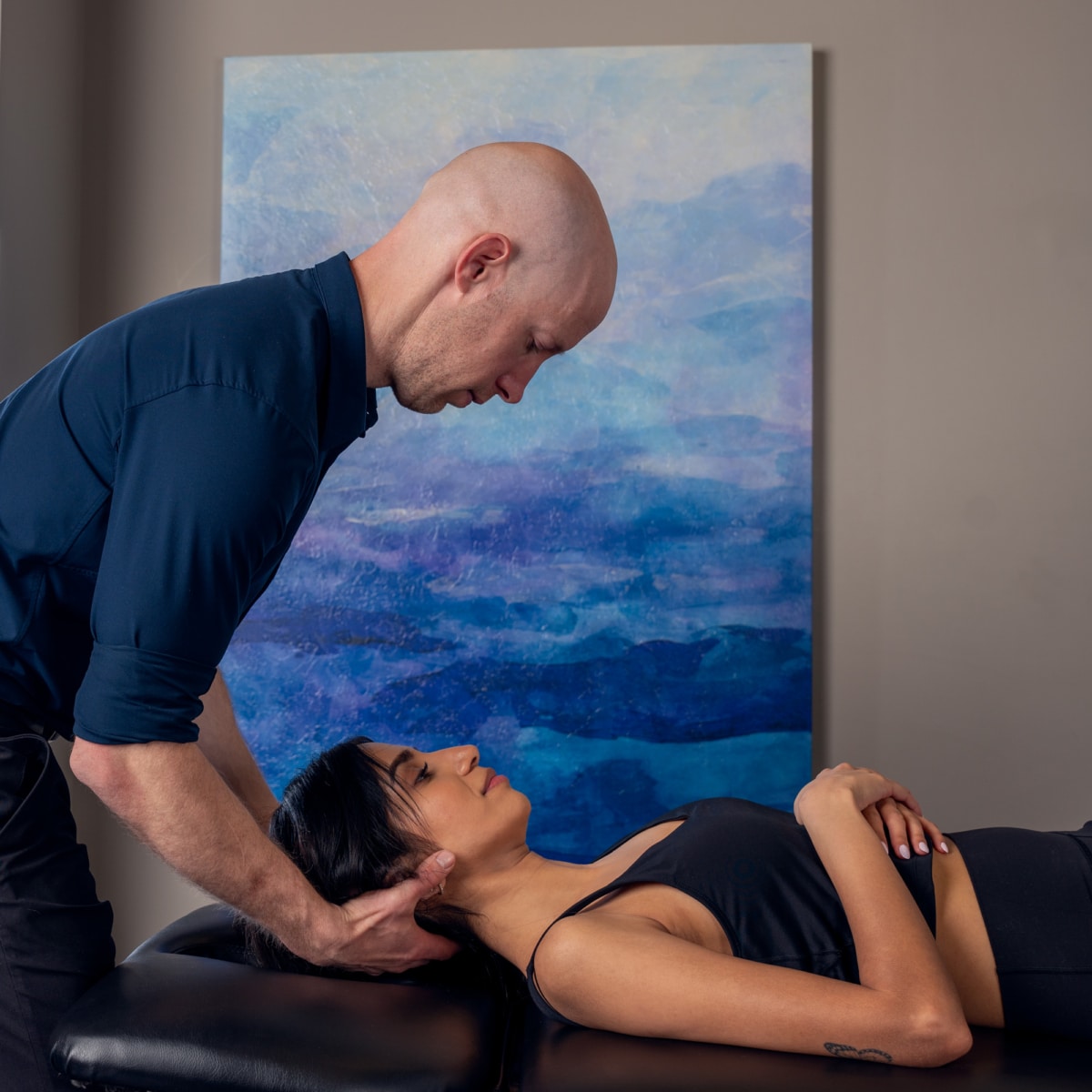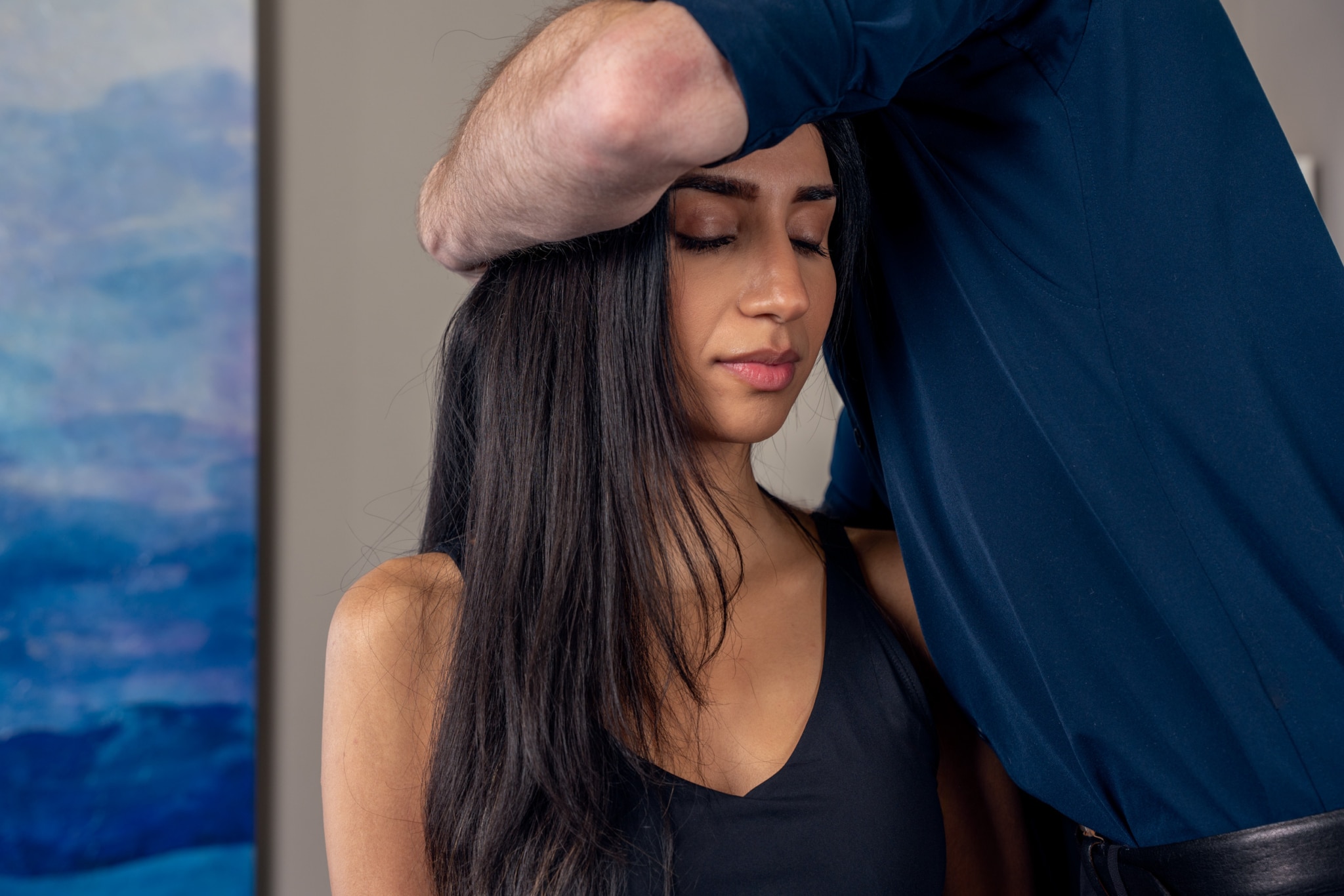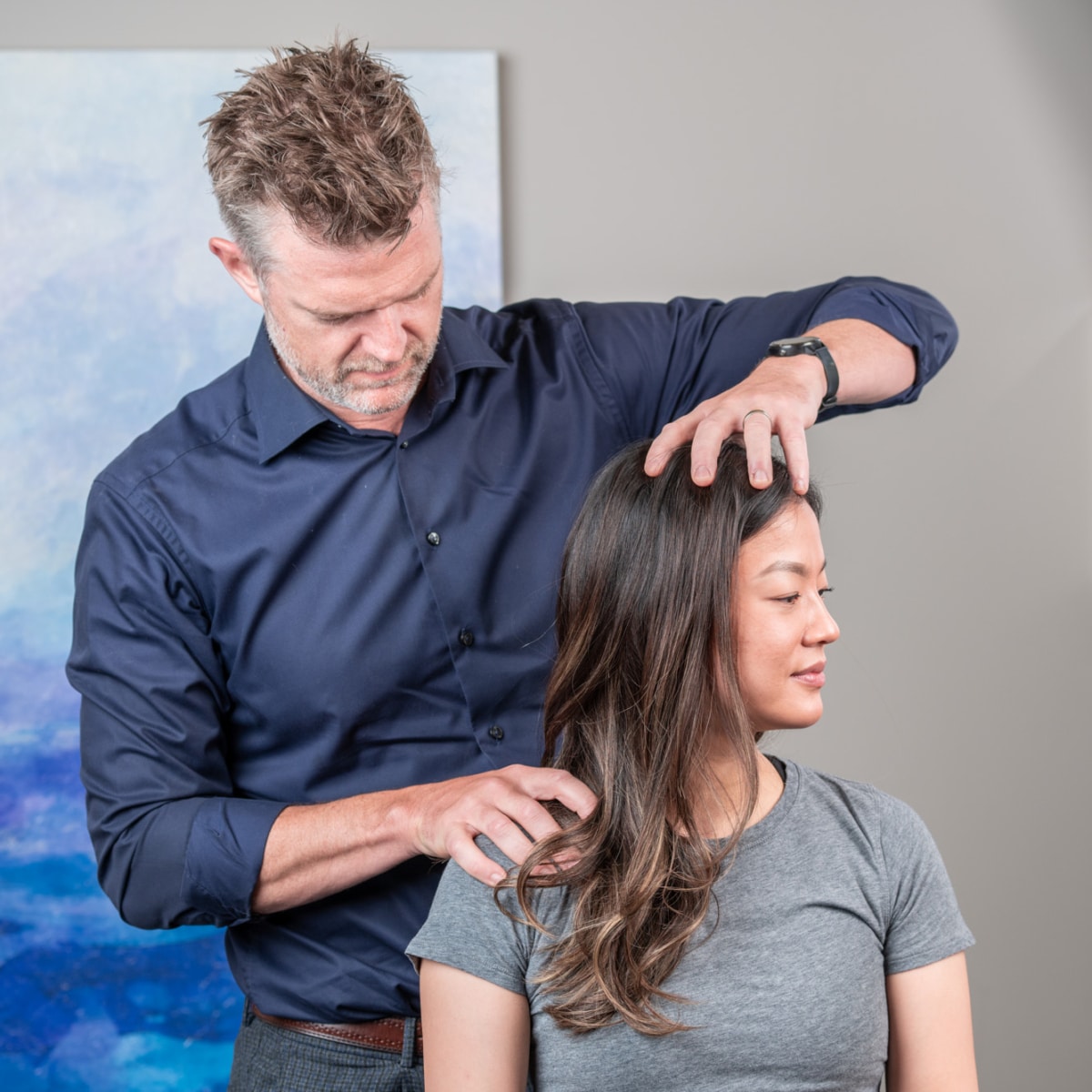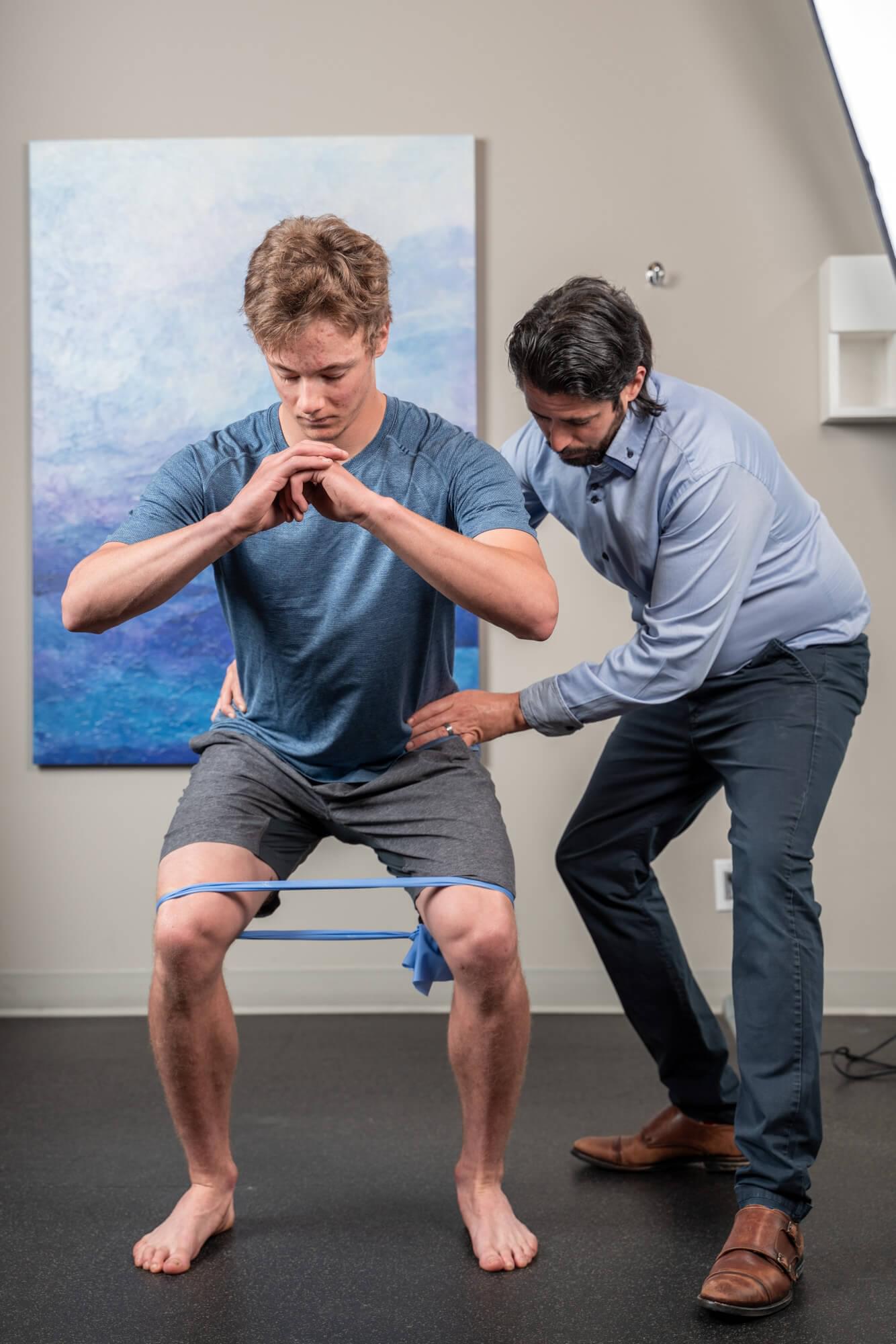
Dizziness and Vertigo Program
Let's resolve your dizziness and vertigo
Tired of feeling like you have just stepped off a boat? Or frustrated with feeling like you live in a “fog”? Do you have moments where everything around you is spinning or moving? Struggling with your concussion symptoms? At Calgary Core Physiotherapy, we understand the disabling effects dizziness and vertigo can have on you. And we are here to help you feel better!
Our vestibular therapy program focuses on: “Diagnosing”, “Managing”, and “Eliminating” your dizziness and vertigo.

What does our Dizziness and Vertigo Program include?
-
Diagnosis
At Calgary Core Physiotherapy, we focus on getting to the “core” of your injury or disability. Through a thorough investigation and tests, our goal is to diagnose exactly what is going on with your vestibular system. Once your therapist knows what the underlying issue is, they will walk you through an easy-to-understand explanation of the problem. One goal of the Dizziness and Vertigo Program is to make sure you have a thorough understanding of your condition, empowering you to be able to return to a more normal life.
-
Management
Treatment to help manage or resolve your dizziness begins in the first session with your physiotherapist. This may involve hands-on techniques for your inner ear(s) and neck, as well as pathology-specific exercises to help you manage or resolve your symptoms. All patients receive a personalized exercise program adapted to their current function and diagnosis.
-
Elimination
Your physiotherapist will give you recommendations and teach you ways to prevent reoccurrences of your dizziness or vertigo. We will work with you to help you return to your sports and activities as your condition improves, and help you get back to as much of your normal self as possible.
What are typical conditions that this program can help with?
The two most common conditions that the Calgary Core Physio Dizziness and Vertigo Program addresses are:
Benign positional paroxysmal vertigo (BPPV) is the most common cause of vertigo arising from a peripheral vestibular issue (opposed to the central nervous system, such as a stroke) and accounts for 20-30% of patients with vertigo. Patients experience a feeling of the room spinning, provoked by certain head movements, such as rolling in bed or looking up.
BPPV is a biomechanical problem of the inner ear, the organ that is responsible for our balance and orientation. Specifically, we have three semi-circular canals on each side of our inner ear that orient us to a specific plane of movement. When our head moves, the fluid inside of these canals will move, telling our brain which way our head is moving. Connected to the semi-circular canals we have gravity-sensitive organs called the otoliths. These organs utilize small crystals in order to sense gravity. Sometimes, with head trauma or with age, these small crystals can be knocked loose and fall into one of the semi-circular canals. When these crystals float around in the fluid within the semi-circular canals, it tells our brain that we are moving and creates a mismatch of information as both our eyes and body do not feel the same movement. This creates vertigo, a feeling of the room spinning around.
BPPV is a very treatable condition, with studies showing 98.4% of patients being successfully treated after 3 sessions with a therapist. Once your therapist identifies which type of BPPV you have, they will guide you through a hands-on repositioning maneuver in order to clear the crystals from your inner ear. Your therapist will also ensure that your vestibular system is functioning optimally, reducing the chance and burden of any future symptoms as the recurrence rate of BPPV can be as high as 40%. This may involve some eye, balance, proprioception, or habituation exercises.
A concussion is a complex pathophysiological process affecting the brain, induced by traumatic biomechanical forces. Concussions can occur with an impact to the head, but can also be due to acceleration and deceleration forces in the absence of head trauma (for example, in a car accident or sports injury). As many as 80%-90% of concussed patients recover within 7-10 days, while 10%-20% develop a complex neurological, vestibular, and mechanical (neck) disorder called post-concussion syndrome (PCS). If your concussion symptoms persist beyond 3 weeks, you may be suffering from PCS.
Symptoms of PCS may include:
- Difficulty sleeping
- Vertigo or dizziness
- Apathy or other personality changes such as irritability or aggression
- Headaches
- Fatigue
- Anxiety and depression
- Aversion or inability to exercise or play sport
- Light and noise sensitivity
- Mental “fog”
- Difficulty in complex environments, like supermarkets or conversations involving several people
Due to the complexity of PCS and head trauma, the literature indicates that many patients require significant intervention in many different areas. These treatments may involve a sub-threshold return to exercise and activities of daily living, cervical (neck) manual therapy, Intramuscular Stimulation (IMS), and many other aspects of vestibular rehabilitation, such as vision and eye exercises, balance and proprioception work, habituation and adaptation exercises, and vestibular repositioning maneuvers.
At Calgary Core Physio, our vestibular and FCAMPT (manual therapy) certifications allow us to address all of the sequelae of a concussion and help you return to activity and sport sooner while reducing and eliminating your post-concussion symptoms.
F.A.Q.s about our Calgary Core Physio Dizziness and Vertigo Program
Your vestibular system is the link between your inner ear (fluid-filled canals located at the end of each ear tube) and the messages that are sent back and forth to your brain to help with your balance. If an injury or disease affects this system, this results in a vestibular disorder.
Vestibular therapy is a specialized form of Physiotherapy for the rehabilitation of injury or disease to the vestibular system. Vestibular therapy has strong evidence for helping people who suffer from the following conditions:
- Concussion (post-concussion syndrome)
- Benign Paroxysmal Positional Vertigo (BPPV)
- Falls and loss of balance
- Neuritis and labyrinthitis
- Meniere’s Disease
- Vertigo related to migraines
- Central Nervous System Disorders and Diseases (eg. stroke)
As many as 35% of the population over 40 years old have experienced some form of vestibular dysfunction and this incidence increases with age. Many children and adults alike have difficulties with reading and other visual tasks, walking, balance, falls, and dizziness and vertigo from very treatable conditions.
Research studies have shown significant improvement is observed in 80% of patients with benign vertigo (BPPV). Hilton MP, Pinder DK The Epley (canalith repositioning) manoeuvre for benign paroxysmal positional vertigo, Cochrane Database of Systematic Reviews 2014, Issue 12. Art. No.: CD001362. DOI 10.1002/14651858.CD003162.pub3
For conditions such as neuritis, labyrinthitis, or an acoustic neuroma resection, a significant improvement has also resulted from vestibular therapy in 80% of patients. Hillier Susan L, McDonne LLM. Vestibular rehabilitation for unilateral peripheral vestibular dysfunction. Cochrane Database of Systematic Reviews. 2011(2): Art. No.: CD005397. http://onlinelibrary.wiley.com/doi/10.1002/14651858.CD005397.pub3/abstract005397.pub3/abstract
A study at the University of Calgary on post-concussion patients showed a significant reduction in time required to return to sport for those treated with vestibular therapy combined with neck rehabilitation. Schneider K, Meeuwisse W. Cervicovestibular rehabilitation in sport-related concussion: a randomized controlled trial. Br J Sports Med. 2014 sep;48(17):1294-8 DOI: 10.1136/bjsports-2013-093267
At Calgary Core Physiotherapy, our vestibular physiotherapists have attended specialized courses in vestibular rehabilitation, and also are Fellows in the Canadian Academy of Manipulative Physiotherapy, an internationally recognized qualification in hands-on therapy. This combination of education and qualifications allows our Physiotherapists to properly diagnose and treat every aspect of an injury, concussion, or other vestibular disorder.

Interested? Want to book? Let's talk.
You can call us at (403) 455-4010, or use the form below. We'll reply within 1-business day.
Your lasting recovery is our priority.
Let’s get you better:


